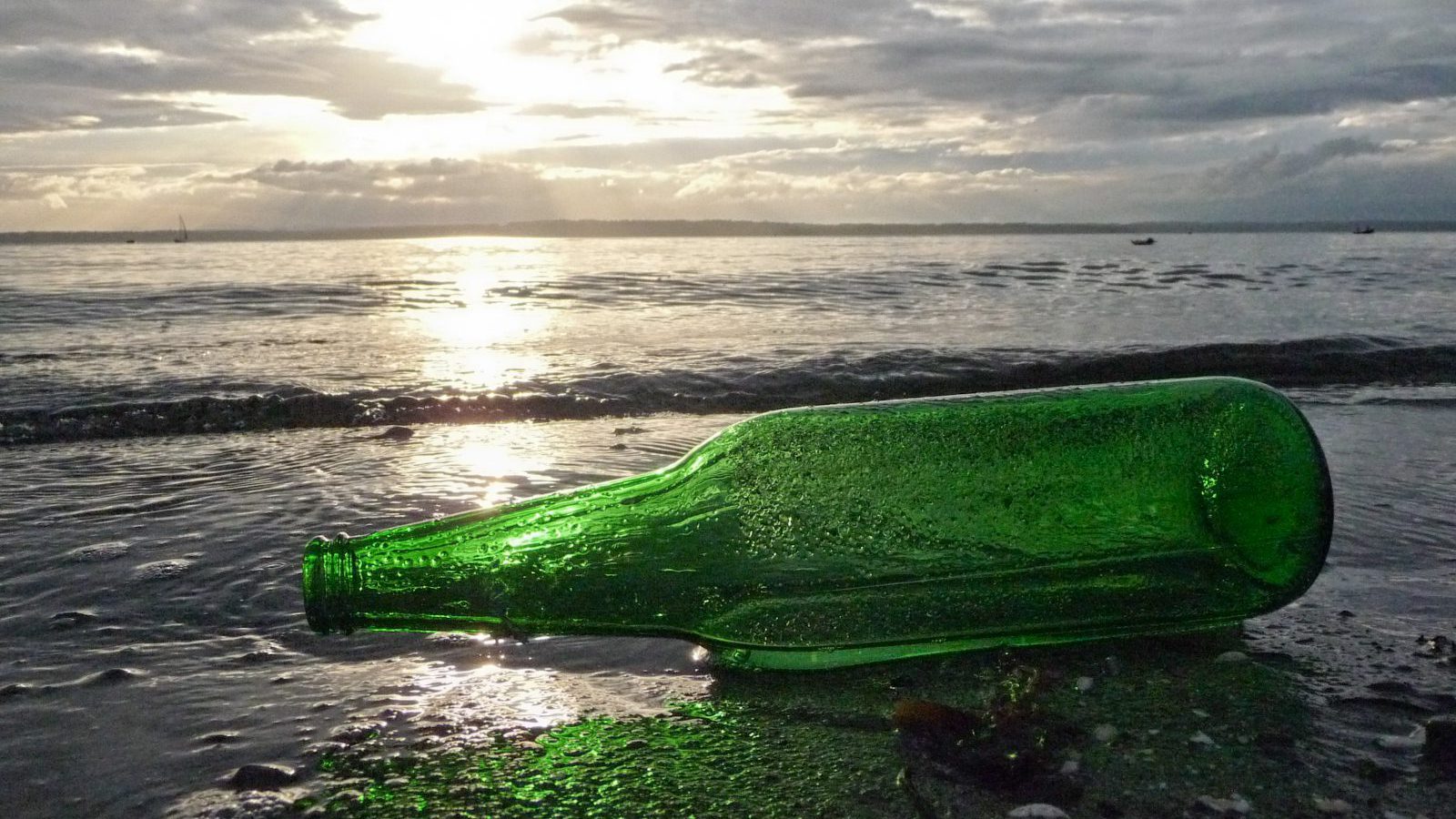Q. Dear Umbra,
Okay, I’m walking on the beach (a beach where few people walk, and no kids), and I see a large brown beer bottle that drifted in on the tide. If I leave the bottle where it is, the next incoming tide will smash it to bits on the rocks, and the bottle will eventually disintegrate and become a part of the beach. But the beach will be less scenic for a while. If I take it home and put it in my recycle bin, a certain amount of excess energy will be used to make new bottles from the old. The recycling truck will burn gas or diesel; the recycling plant will burn energy. Yet I’ve been schooled to recycle. Should I leave the bottle on the beach or bring it home?
S.F.B.
Lynnwood, Wash.
A. Dearest S.F.,
First of all, did you check the bottle for a message from an island castaway? Somewhere, this very moment, a lonely shipwreckee could be staring longingly across the waves in your direction, waiting for his rescue. Go ahead and doublecheck, I’ll wait.
All clear? Okay, good. If I may, I think this bottle still has a message in it — just one that deals with issues of waste, energy, and consumerism rather than pleas from the lost at sea. Allow me to help translate.
Let’s wade into your first option: Leave the bottle where it lies. You’re probably right that eventually, waves would smash it into pieces, then smooth down those pieces into decorative shards of sea glass. Though it’s certainly not a natural part of the beach, (worn-down) glass is among the most benign forms of litter — it’s nontoxic, nonreactive, and unlikely to be mistaken for food by aquatic critters. Compared with plastic trash, which never breaks down, forms giant patches of garbage in the oceans, soaks up pollutants, and builds up in the food chain, an errant glass bottle here and there sounds positively bucolic.
But let’s think about what happens before the waves sand it down: broken glass poses a safety risk to beachgoers’ bare feet (and can you be sure no kids ever play there?). It makes an otherwise pristine beach look, well, trashy. And it fails one of my favorite litmus tests: If everyone left bottles on the shoreline, would we like the result? So let’s pick that bottle up.
Now what? If you put your ear to the glass, you’ll hear the bottle’s first message: Reuse me! As you note, S.F., recycling anything does indeed use some transport and processing energy — that’s the reason we always put “reuse” before “recycle” in our triple Rs. So might you find a use for the lone vessel at home? How about making it a rustic candleholder? Cute planter? Lamp? Tiki torch?
Upcycling projects aside, it seems to me the heart of your question is this: Is recycling glass worthwhile? And here, your wayward bottle also has a message for us: Yes! Yes, it is.
Overall, recycling glass does save energy, and therefore carbon emissions, over manufacturing virgin glass. True, you get less of an energy payback than you do when recycling aluminum, steel, paper, and plastic, but it’s still an improvement. (If you’re a numbers person, the EPA calculates that 6.49 million BTUs of energy go into making one short ton of virgin glass; for recycled glass, it’s 4.32 million BTUs.) That savings comes from the fact that the more recycled content you incorporate down at the plant, the less heat required from the furnace. Glass is also primed for recycling because it can be melted down and reshaped into more high-quality bottles and jars basically forever, in what’s known as a closed-loop process.
That’s not to say glass is the perfect recyclable, S.F. We’ve recently discussed how it can cause contamination issues in single-stream recycling systems (which is the kind you have there in Lynnwood). And glass is heavy, which means it’s more expensive — both money- and fuel-wise — to send our used bottles on their journey from sorting facilities to recycling plants back to distribution centers. But still, recycling comes out ahead: According to this life cycle analysis from the Glass Packaging Institute, transportation-related emissions are offset by the gains you make in the production phase. The aforementioned EPA report backs this up.
So, whether you reuse or recycle it, one thing’s for sure: that big ol’ bottle has no place on your favorite strolling beach. In fact, once I file this column I think I’ll take a nice, relaxing, marine-debris-collecting stroll on the sand myself. Not only will our shores be just a bit better for it, but one of these days I’m bound to find the note I’ve been longing for from an island castaway.
Culletly,
Umbra



